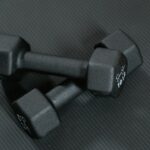When we’re aiming to pack on muscle and maximize our gains, our workout routine and diet are only part of the equation. The right supplements can give us the extra edge we need to push past plateaus and see real progress during a bulking phase. With so many options out there, it’s tough to know which ones actually deliver results.
We all want to make the most of our time in the gym and fuel our bodies for serious growth. Choosing the best supplements for bulking isn’t just about bigger muscles—it’s about supporting recovery, boosting performance, and ensuring we’re getting the nutrients we need. Let’s explore which supplements can truly help us reach our bulking goals.
What to Look for in the Best Supplements When Bulking
Choosing the right supplements can make a noticeable difference when we are in a bulking phase. Many options are available, but not all supplements are equally effective or necessary. Here is what we should keep in mind while picking the best products for our bulking goals.
Ingredient Profile and Scientific Backing
We want to focus on supplements with scientifically supported ingredients. For bulking, this often means key ingredients like whey protein, creatine monohydrate, and essential amino acids (EAAs) such as leucine. Each of these has a proven track record for muscle growth and recovery. It is crucial to check the ingredient list for proprietary blends. Companies sometimes hide ingredient quantities, which makes it hard to know what we are actually consuming or if the dosages are effective.
Protein Quality and Source
Protein is the foundation of muscle building, so the type and quality matter. We should look for supplements that use high-quality sources like whey isolate or hydrolysate for quick absorption or casein protein for slower digestion. Plant-based proteins are an excellent option for vegans, but it is important to compare their amino acid profiles to ensure they are complete and suited for muscle growth.
Dosage and Serving Size
Too little of a good thing will not give results. We check the label for ingredient dosages that align with research. For instance, creatine monohydrate should be at least 3 to 5 grams per serving to see strength and growth benefits. Some pre-workouts are overloaded with stimulants, while others underdose muscle-building compounds. We need to balance these factors based on our overall routine and goals.
Transparency and Third-Party Testing
Supplements should be free from faulty claims and hidden ingredients. We look for brands that practice label transparency and provide third-party test results. Certifications from organizations like NSF Certified for Sport or Informed Choice ensure no banned substances are present and give an extra level of trust.
Digestibility and Potential Allergens
For some of us, digestibility makes or breaks a supplement. Products containing lactose may cause digestive issues. Plant-based options may include allergens such as soy or gluten. It is important to read the allergen statement and check for added enzymes that improve digestibility.
Caloric and Macronutrient Content
When bulking, caloric surplus is key. We check the product’s calorie, protein, fat, and carbohydrate content to see how it fits into our daily nutrition. Mass gainers are formulated to provide a high number of calories per serving, but sometimes they include excessive sugars or unhealthy fats. It is smart to choose a mass gainer that prioritizes clean, nutrient-dense calories over fillers.
Example Comparison Table: Key Nutrient Benchmarks
| Supplement Type | Protein (g) | Carbs (g) | Fats (g) | Calories | Creatine (g) | Notable Features |
|---|---|---|---|---|---|---|
| Whey Isolate | 25 | 2 | 1 | 120 | 0 | Rapid absorption |
| Mass Gainer | 50 | 120 | 10 | 650 | 0 | High-calorie, carb-dense |
| Creatine Monohydrate | 0 | 0 | 0 | 0 | 5 | Mixes easily, strength boost |
Flavor, Mixability, and Convenience
We want supplements that do not taste chalky, blend easily, and suit our routines. Some powders clump or have a gritty texture, which makes them unpleasant to use. Flavor options help us stick to a supplement regime longer. Ready-to-drink formats may be a good option if we have a busy lifestyle or often eat on the go.
Cost Versus Value
Not all expensive supplements outperform budget-friendly choices. We focus on cost per serving and what benefits are included. For example, a protein powder with added digestive enzymes or BCAAs may be worth paying a bit extra. Bulk buying options or subscriptions can also lower the price and help us stay consistent with our intake.
Brand Reputation and User Reviews
Established brands with good reputations are less likely to cut corners. We check online reviews and community forums for unbiased user feedback. High ratings for taste, results, and transparency usually indicate a dependable choice.
By evaluating supplements with these criteria in mind, we can make informed decisions that support our bulking progress and help us reach our muscle-building goals efficiently.
Essential Supplements for Bulking
The right combination of supplements can drive muscle growth and accelerate results when we commit to a bulking phase. Each supplement serves a unique purpose to help us consume more nutrients, stimulate muscle gains, and optimize recovery between intense training sessions.
Protein Powders
Protein forms the foundation of any successful bulking plan. Getting enough high-quality protein each day can be a challenge, especially for those with a packed schedule or a higher caloric requirement. Protein powders tackle this issue efficiently by delivering a concentrated dose in a convenient format.
Whey protein is the most popular choice due to its impressive amino acid profile and fast absorption. Options like isolate and hydrolysate offer even quicker digestion for post-workout recovery. For those who struggle with lactose intolerance, seek out plant-based alternatives such as pea or rice protein, which now feature improved taste and mixability.
We find protein powders particularly versatile. They blend easily into shakes, oats, or baked goods without overwhelming flavor. Most brands offer a wide range of tastes from basic vanilla to rich chocolate and seasonal varieties. Mixability matters for many of us, and top brands typically produce smooth, lump-free shakes when mixed with water or milk.
Here’s a quick look at protein content and calories in common products:
| Protein Powder Type | Protein (g per serving) | Calories (per serving) |
|---|---|---|
| Whey Isolate | 23-27 | 100-120 |
| Whey Concentrate | 18-24 | 120-140 |
| Plant-Based (Pea/Rice) | 20-25 | 100-130 |
Budget considerations come into play, too. Larger tubs or bulk selections usually provide better value. Some companies add extra ingredients like digestive enzymes to improve absorption, while others keep formulas clean and simple for those with allergies or sensitivities.
Creatine Monohydrate
When it comes to proven results, creatine monohydrate sits at the top of the list for muscle building. It helps our muscles produce more energy during short, explosive lifts or sprints, leading to increased strength and greater training volume over time.
Consistent creatine supplementation can improve power output and help us achieve those crucial last reps that drive progress. The most studied and trusted form is monohydrate, which is not only effective but also cost-friendly. Some new products market “micronized” creatine or alternative forms, but research repeatedly supports basic monohydrate for safety and efficacy.
For optimal absorption, we commonly take 3 to 5 grams daily. Some of us might notice mild water retention, an expected side effect as muscles draw in more water. The powder itself is normally flavorless and dissolves well in most beverages. Creatine can be stacked with protein or pre-workout supplements without issue.
To get maximum results, consistency is key. Skipping days reduces effectiveness, so a daily habit delivers the best long-term gains.
Branched-Chain Amino Acids (BCAAs)
BCAAs—comprising leucine, isoleucine, and valine—play an essential role in muscle recovery and the reduction of exercise-induced fatigue. These amino acids are crucial because our bodies cannot produce them on their own, meaning we must get them from food or supplements.
While a high-protein diet generally covers our BCAA needs, supplemental BCAAs may still help during periods of intense training or when workouts are fasted. Flavored BCAA powders mix well with water, making them a refreshing intra-workout drink. We find that the best products include a 2:1:1 ratio of leucine to isoleucine and valine, mirroring what studies have shown most effective for muscle building and protection against muscle breakdown.
Typical benefits include less delayed onset muscle soreness (DOMS) and improved training endurance. Some BCAA supplements add electrolytes, vitamins, or small amounts of carbohydrates for enhanced hydration and sustained energy during long lifting sessions. Taste and sweetness vary widely, so sampling a few brands helps us find the best fit for our preferences.
Weight Gainers
Meeting high caloric demands for bulking is a common challenge, especially for those with fast metabolisms or smaller appetites. Weight gainer supplements simplify this process by packing substantial calories, protein, and carbohydrates into a single shake. These products appeal to anyone struggling to eat enough whole foods to hit calorie targets.
Typical weight gainers deliver between 500 and 1,200 calories per serving with a protein-to-carb ratio tailored for muscle building and recovery. Some formulas include healthy fats, vitamins, and digestive enzymes, while others focus on clean, straightforward macros. Here is a snapshot of common weight gainer nutrition:
| Weight Gainer Supplement | Protein (g) | Carbs (g) | Calories (per serving) |
|---|---|---|---|
| Standard Blend | 35-50 | 90-120 | 600-1,200 |
Mixability and taste quality are crucial here. The thick texture can be challenging, but premium powders dissolve more easily. We recommend starting with a half serving and adjusting up over time to avoid stomach discomfort. While weight gainers offer convenience, combining them with real food makes for a healthier, more balanced bulking diet.
Beta-Alanine
Beta-alanine is an amino acid that helps boost muscular endurance by increasing the levels of carnosine in our muscles. Higher carnosine delays lactic acid buildup that often causes muscle fatigue and burning during resistance training or high-intensity intervals.
Regular beta-alanine use translates to longer sets and better progress in both strength and hypertrophy. Most research supports taking 2 to 5 grams daily. A common side effect is a tingling sensation known as paresthesia, which is harmless and fades with regular use or when doses are split throughout the day.
We notice the best results after consistent supplementation over several weeks, rather than from a single dose. Beta-alanine complements creatine well and often appears alongside other pre-workout ingredients. If we want to push out a few more reps or withstand higher workout volumes, this supplement makes a noticeable difference.
Multivitamins and Minerals
A comprehensive multivitamin serves as a nutritional “safety net” for those bulking with high energy demands. When we eat more to gain muscle, it’s not always easy to include a perfectly balanced variety of fruits, vegetables, and whole grains in every meal. Micronutrient deficiencies can sneak up and affect our performance, recovery, and immune health.
High-quality multivitamin supplements bridge the gap by providing essential vitamins like D, B-complex, and C, plus key minerals such as magnesium, zinc, and selenium. Some options are geared toward athletes, with higher antioxidant content or specific blends to support joint health and recovery. Always look for third-party testing and transparent labeling to avoid unwanted fillers or underdosed ingredients.
For maximum benefit, we take our multivitamin with food to boost absorption and minimize the chance of minor stomach upset. While not a replacement for a diverse diet, a good multivitamin ensures we cover our bases as training and caloric intake increase.
Additional Beneficial Supplements
While the staples like protein powders and creatine play a primary role in any bulking stack, several other supplements can further enhance results. These additional options target inflammation, workout intensity, and digestive support, filling critical gaps in our bulking routine.
Omega-3 Fatty Acids
Omega-3 fatty acids are well-known for supporting heart health, but their advantages during bulking extend much further. These healthy fats, found in fish oil and algal oil, help dampen joint inflammation that often comes with increased training volume and heavier lifts. By reducing joint stiffness, omega-3s may allow us to train harder and recover faster.
Another key benefit rests in muscle protein synthesis. Research points to omega-3 supplementation boosting cells’ sensitivity to anabolic stimuli, so our bodies make better use of the protein we consume. This can contribute to greater lean mass accretion during a calorie surplus. Omega-3s also positively impact insulin sensitivity, which can help us minimize fat gain as our total food intake goes up.
When choosing an omega-3 supplement, quality is important. We look for products with a high EPA and DHA content, minimal fillers, and third-party testing for purity. Capsules are the most convenient for daily dosing, but flavored liquids can be an option for those who struggle with pills. We usually aim for a combined EPA and DHA intake of roughly 1-3 grams per day for athletes focused on muscle growth and workout recovery.
| Supplement Type | Key Benefits | Recommended Intake |
|---|---|---|
| Omega-3 Fatty Acids | Joint support, enhanced protein synthesis, fat utilization | 1-3 g (EPA+DHA)/day |
Pre-Workout Boosters
Pushing through intense sessions is mandatory when bulking. This is where pre-workout supplements step in by priming our focus, endurance, and strength-output right before we hit the gym. Most pre-workouts contain ingredients like caffeine for alertness, beta-alanine to buffer muscle acidity, and citrulline malate for improved blood flow and pumps.
The benefits go beyond simple energy. Pre-workout boosters can translate into higher training volume, more reps with heavier weights, and ultimately more mechanical tension on muscle tissue—a direct trigger for growth. Some advanced formulas even include nootropics for enhanced motivation and concentration, helping us stay locked in every set without mental fatigue.
Still, not all pre-workouts are created equal. We avoid proprietary blends that hide exact ingredient dosages and stick to formulas with clear labeling. For those sensitive to stimulants, stimulant-free options provide similar vascular and endurance support without caffeine jitters. We also consider potential side effects—some may experience tingling from beta-alanine or digestive upset if dosed too high. Timing is important too. We like to take our pre-workout about 20-30 minutes before training for optimal results.
| Main Ingredients | Effects | Precautions |
|---|---|---|
| Caffeine, Beta-Alanine, | Increased focus, strength, endurance | Start with low dose, monitor |
| Citrulline Malate | Enhanced blood flow, better pump | sensitivity to stimulants |
| Nootropics (optional) | Improved cognition, motivation | Check for ingredient transparency |
Digestive Enzymes
Bulking often requires us to eat much more than usual, which can stress our digestive system and lead to bloating, indigestion, or discomfort. Digestive enzyme supplements support this process by breaking down macronutrients—proteins, carbs, and fats—into smaller components our bodies can absorb more efficiently. This can be especially beneficial when meals are larger or contain foods that are harder to digest.
Most digestive enzyme blends feature proteases (for proteins), lipases (for fats), and amylases (for carbohydrates). Some advanced products even include lactase for dairy or cellulase to assist with fibrous vegetables. These can make a noticeable difference in how we feel after heavy meals, as well as in how efficiently we extract nutrients for muscle growth and recovery.
For best results, we look for multi-enzyme formulas from reputable brands, ideally with clear labeling of specific enzyme activities and dosages. Digestive enzymes are usually taken right before or with larger meals. For those experiencing persistent discomfort or digestive issues despite enzyme supplementation, it’s best to consult with a healthcare professional to address any underlying conditions.
| Enzyme Type | Function | When to Take |
|---|---|---|
| Protease | Helps break down proteins | With or before protein-rich meals |
| Amylase | Aids digestion of carbohydrates | With large meals or carbs |
| Lipase | Facilitates fat breakdown | With fatty foods |
| Lactase | Assists lactose digestion (dairy) | With dairy-containing meals |
Integrating omega-3 fatty acids, pre-workout boosters, and digestive enzymes into a bulking supplement plan fills out our nutritional strategy, helping us recover quickly, train intensely, and get the most from every calorie consumed. Each option addresses a different need, making the bulking process smoother and more productive for athletes and gym-goers alike.
Features to Consider When Choosing Bulking Supplements

Selecting the right bulking supplement takes more than grabbing a popular product off the shelf. We must look beyond basic claims and evaluate supplements by their ingredient quality, cost-effectiveness, and user experience. Here’s how we break down the most important features.
Ingredient Quality and Purity
High-quality ingredients lay the foundation for any effective bulking supplement. We prioritize formulas with transparent ingredient lists and no proprietary blends, so we always know exactly what we’re consuming. Pure ingredients, such as non-denatured whey protein or clinically dosed creatine, not only deliver better results but also reduce the risk of contaminants and banned substances.
When evaluating ingredient purity, we look for brands committed to third-party testing. Certifications from organizations like NSF Certified for Sport or Informed Choice give us confidence that products have been tested for heavy metals, pesticides, and other impurities. We also check for artificial additives, unhealthy fillers, or allergens that might upset digestion or impact our bulking progress. The fewer unnecessary extras, the better.
Ingredient sourcing makes a difference too. Grass-fed dairy, plant-based proteins from non-GMO sources, and sustainably or ethically harvested raw materials signal a higher-level product. A label that details the source and form of each ingredient helps us avoid lower-quality proteins or supplements full of cheap bulking agents.
Essential ingredient ratios and proper dosing matter as well. For example, a protein powder should deliver at least 20 grams of protein per serving, while creatine supplements should offer pure creatine monohydrate without excess sugars. We read the nutritional breakdowns and compare them to scientific guidelines, ensuring that supplements match our specific bulking needs—not just hype.
Cost and Value for Money
Bulking can get expensive, especially when we add multiple supplements to our daily routine. Cost alone should not dictate our choices, but it does influence which products we stick with for the long run. We always weigh price against the quantity and quality provided.
Let’s consider value per serving. Many supplements look affordable until we calculate cost-per-dose. We compare the serving sizes and total servings per container, always asking if the formula delivers proven results at every scoop. Higher-priced products might be justified if they contain patented ingredients, superior protein sources, or guarantee full-label transparency. Budget-friendly options are appealing but can sometimes cut corners by using low-grade fillers or under-dosed actives.
It’s also smart to check for hidden costs. Does the supplement require multiple scoops for an effective dose, or do we need to add extra products for a complete bulking protocol? We check the overall stack potential, as well as subscription savings or bundle deals, to make sure we get the best long-term value for our investment.
Here’s a quick example comparing cost and servings of popular bulking supplements:
| Product | Price (USD) | Servings per Container | Cost per Serving | Third-Party Tested | Protein per Serving (g) |
|---|---|---|---|---|---|
| Whey Isolate Brand A | $45 | 30 | $1.50 | Yes | 25 |
| Weight Gainer Brand B | $70 | 20 | $3.50 | No | 53 |
| Creatine Mono Brand C | $25 | 60 | $0.42 | Yes | N/A |
By comparing options in this way, we ensure our money is going toward supplements that deliver real bulking results rather than empty marketing claims.
Ease of Use and Taste
We rarely stick with a bulking supplement if it’s a hassle to use or tastes terrible. Ease of use often means the difference between consistent progress and unused tubs collecting dust.
Mixability matters. We look for powders that dissolve easily in water, milk, or shakes with minimal clumping or gritty residue. Single-serving packets, resealable bags, or easy-to-scoop tubs add convenience for busy schedules, travel, or the gym. Softgel capsules or chewables are simpler alternatives for those who dislike powders.
Flavor and mouthfeel play a huge role too, especially when we use supplements daily. The best protein powders and weight gainers come in a variety of flavors—from chocolate to vanilla or unflavored for blending into recipes. Products with natural sweeteners or mild taste profiles are easier on the palate, especially over months of use. We also watch out for artificial aftertastes or overly sweetened blends, which can become unpleasant over time.
Digestibility fits into this category. If a supplement frequently causes bloating, cramps, or digestive upsets, we know it’s not sustainable for our routine. We favor clean formulas without excess sugars, lactose, or problematic additives. Brands that use enzymes or probiotics help further improve absorption and comfort.
Finally, real-world feedback shapes our opinion. User reviews that mention great taste, easy mixing, and zero stomach issues give us more confidence to recommend a supplement as part of a daily bulking plan.
Pros of Using Supplements When Bulking

Supplements play a valuable role in helping us reach our bulking goals more efficiently and effectively. Below we break down the key advantages that make supplements a popular addition to any serious bulking plan.
Supports Muscle Growth and Recovery
One of the standout benefits is the way supplements like whey protein and essential amino acids deliver concentrated nutrients directly to our muscles. When we aim for muscle hypertrophy, hitting daily protein targets can be challenging with food alone. High-quality protein powders and creatine simplify this process by offering fast-absorbing protein and the scientifically backed creatine boost our muscles need after intense sessions. Not only do they help kick-start muscle protein synthesis, but they also speed up recovery and minimize soreness, allowing us to train harder and recover faster.
Convenient and Time-Saving Nutrition
Bulking demands more calories and macronutrients than many of us can comfortably consume from whole foods. With work, family, and other commitments, it’s not always realistic to prepare multiple large meals. Supplements like mass gainers, ready-to-mix protein shakes, and BCAAs provide an easy, portable solution for hitting nutrition targets on busy days. We can quickly shake up a serving or two after training or between meals, making it simple to stay on track without extra kitchen time.
Enhanced Workout Performance
Supplements such as creatine monohydrate, beta-alanine, and pre-workout formulas are designed to boost our physical performance, energy, and stamina in the gym. Creatine increases ATP production, allowing us to squeeze out more reps and sets, while beta-alanine helps delay muscle fatigue. Pre-workouts containing caffeine and nootropics elevate our focus, motivation, and endurance. This means more productive training sessions, greater strength gains, and ongoing progress without hitting a plateau.
Precision and Consistency in Nutrient Intake
When we choose supplements with clear labeling and dosing, we take a lot of the guesswork out of nutrition. It is easy to measure exactly how much protein, creatine, or amino acids we are consuming, ensuring we meet evidence-based recommendations for muscle growth. This precision is especially helpful for those tracking macros or following specific nutrition plans, giving us consistent intake day after day.
Filling Nutritional Gaps
Whole foods should always come first, but it is common to fall short on vitamins, minerals, or omega-3s when bulking, especially when prioritizing calorie-dense options. Multivitamins, fish oil capsules, and fortified protein powders help fill micronutrient gaps that could otherwise impact energy, immunity, and overall health. Ensuring our bases are covered allows us to focus on training without worrying about deficiencies.
Minimizing Digestive Discomfort
Bulking often requires eating more than what feels comfortable. Supplements like digestive enzymes and certain protein blends are designed for easy digestion and absorption. This can help reduce bloating, stomach upset, or discomfort that comes with eating frequent large meals. As a result, we can maintain high calorie intake without digestive strain, supporting consistent progress.
Cost-Effective Calorie and Nutrient Intake
While a quality supplement regimen comes with a price, it can be more affordable in the long run compared to buying equivalent nutrition through whole foods. For example, protein powders usually offer a lower cost per gram of protein compared to meats or dairy. Weight gainers pack hundreds of calories into a single serving, saving money and time for those struggling with appetite or busy schedules.
Improved Motivation and Adherence
When we see measurable progress—such as muscle gain, increased lifts, or faster recovery—it reinforces positive habits. Having reliable supplements on hand makes it easier to stick with our routines. It’s motivating to know we’re doing everything we can to support our goals, which translates to better adherence to training and nutrition plans in the long term.
At-a-Glance: Key Pros of Bulking Supplements
| Advantage | Context | Example Supplement |
|---|---|---|
| Muscle Growth & Recovery | Boosts protein synthesis & reduces soreness | Whey Protein |
| Convenience | Easy to use, quick meal replacements | Mass Gainers |
| Performance Enhancement | Increases energy, strength, and endurance | Creatine, Pre-Workout |
| Accurate Nutrient Delivery | Precise dosing for macronutrients and creatine | Essential Amino Acids |
| Nutritional Gap Filler | Prevents vitamin and mineral deficiencies | Multivitamins, Fish Oil |
| Digestive Comfort | Promotes better food and nutrient absorption | Digestive Enzymes |
| Cost Efficiency | Lower price per protein/calorie than whole foods | Bulk Protein Powder |
| Motivation & Consistency | Supports progress and long-term adherence | All categories |
These advantages show why supplements have become foundational tools in modern bulking strategies. For many of us, they offer a smart, efficient, and science-backed way to improve muscle gain results during a demanding growth phase.
Cons and Potential Drawbacks

While bulking supplements can accelerate progress and fill nutritional gaps, they are not without downsides. Being aware of these potential pitfalls helps us make mindful choices about what we add to our regimen. Below, we explore several concerns and limitations that come with relying on supplements during a bulking phase.
Risk of Overconsumption
When we focus heavily on supplements for protein, carbohydrates, or other nutrients, it is easy to exceed our daily calorie or macronutrient needs. This can lead to unwanted fat gain rather than lean muscle. Some weight gainers and protein powders pack high levels of sugars and fats, which quickly add excess calories if we do not monitor our total intake. Tracking both supplement servings and whole foods is essential to avoid overdoing it.
Digestive Issues
Rapid increases in protein or calorie intake, especially from powdered or highly processed supplements, can cause digestive discomfort. Common issues include bloating, gas, cramping, and sometimes diarrhea. This tends to happen with products that contain artificial sweeteners, certain sugar alcohols, or low-quality protein concentrates. People with sensitive digestive systems or lactose intolerance may find that some supplements exacerbate symptoms, especially with dairy-based proteins. Trying small servings first and opting for clear ingredient labels or plant-based blends can minimize these side effects.
Hidden Additives and Allergens
Not all supplements are created equal. Some include fillers, artificial colors, preservatives, or potential allergens not clearly listed on the packaging. Examples include soy lecithin, gluten, or hidden nuts in flavorings. For those with food sensitivities or allergies, this poses a real risk. Only supplements with transparent labeling and third-party certification offer true peace of mind.
Cost Versus Real Food
Supplements can get expensive, especially high-quality protein powders, creatine, and specialized blends. Many bulkers find themselves spending more on supplements than on nutrient-rich whole foods that offer additional vitamins, minerals, and fiber. Over-reliance on powders or pills can also crowd out balanced meals, reducing the overall quality of the diet. Carefully comparing cost per serving against calorie and protein yield is important, and we should always prioritize natural foods as the foundation of a bulking diet.
Diminishing Returns and Plateau
The initial benefits of supplements like creatine or pre-workouts may taper off over time. Our bodies often adapt, developing tolerance to certain ingredients. This can make the results less noticeable or prompt us to increase dosages beyond safe recommendations, risking side effects. Cycling supplements or focusing on training and diet rather than just adding more products is necessary for sustainable progress.
Possible Contamination and Safety Issues
The supplement industry is not as tightly regulated as the pharmaceutical sector. Contamination with banned substances, heavy metals, or undeclared stimulants is a serious concern, especially with unverified brands. Such contaminants can be dangerous or lead to accidental doping in competitive sports. Sticking to reputable brands with third-party testing and published lab results is the best way to safeguard our health and performance.
Nutrient Imbalance
Relying on isolated nutrients—like only protein or creatine—without a supportive diet can lead to imbalances. For instance, getting most of our protein from powders rather than varied animal or plant sources means missing out on other amino acids, vitamins, and minerals essential for muscle growth and recovery. Whole foods supply these complementary nutrients that supplements alone often lack.
Not a Substitute for Proper Diet or Training
No supplement replaces smart training and a solid eating plan. Overemphasis on products can mask shortcomings in either area. Some athletes expect magic-bullet results from adding powders or pills without adjusting their workout intensity, sleep, or overall nutrition. This mindset can stall progress and create frustration.
Potential Side Effects
Some popular bulking supplements come with their own set of side effects. We see this with:
| Supplement Type | Possible Side Effects | Notes |
|---|---|---|
| Creatine | Water retention, cramping, GI upset | Usually reduces if proper hydration is maintained |
| Pre-workouts | Jitters, insomnia, increased heart rate | Often contains high levels of caffeine or stimulants |
| Weight Gainers | Blood sugar spikes, fat gain | Watch for excessive added sugars and saturated fats |
| BCAAs | Imbalance if overused | Needs to be balanced with total protein intake |
| Multivitamins | Toxicity if overdosed | Exceeding daily values of fat-soluble vitamins can be harmful |
Understanding the drawbacks of each supplement lets us fine-tune our approach and avoid setbacks. By staying informed and monitoring our results, we can enjoy the benefits of bulking supplements while sidestepping their most common pitfalls.
Performance and User Experience
Choosing the right bulking supplements can make a significant difference in workout results and overall user satisfaction. Performance depends not only on what is on the label but also on how well the product delivers real-world benefits during a bulking phase.
Effectiveness in Supporting Muscle Growth
When it comes to effectiveness, certain supplements have set themselves apart based on clinical research and user experience. Whey protein, for example, stands out for its fast absorption and complete amino acid profile. This makes it ideal for muscle recovery and supporting lean mass gains especially when paired with resistance training. Many gym-goers notice improved muscle fullness and easier progress when consuming enough protein with quality powders.
Creatine monohydrate delivers reliable performance benefits. Studies consistently show that creatine users experience increased muscle strength and training volume. This supplement works by boosting the body’s phosphocreatine stores, helping muscles recover ATP (adenosine triphosphate) quickly during short intense efforts. It is often the first supplement we recommend for anyone hitting plateaus or pushing for new personal bests.
BCAAs — especially the combination of leucine, isoleucine, and valine — help reduce muscle breakdown during tough training sessions. They support faster recovery and less perceived soreness. However, BCAAs are most useful when dietary protein is not consistently high. Those already hitting their daily protein goals from food and shakes may notice marginal effects.
Weight gainers can be a double-edged sword. They are highly efficient for individuals who struggle to consume enough calories through food alone. By providing a dense calorie mix often with added vitamins and minerals, weight gainers allow users to achieve a caloric surplus with ease. The effectiveness of these products increases if the user has a fast metabolism or a busy schedule, but they must monitor for excess sugar and filler ingredients.
Beta-alanine is valued for its role in buffering lactic acid and enhancing muscular endurance. Consistent use may allow for longer sets and improved overall workout volume. Some users report mild tingling (paresthesia), which is normal and not harmful at recommended doses.
Multivitamins, minerals, omega-3s, and digestive enzymes work behind the scenes. They may not provide instantly noticeable effects like creatine or pre-workouts, but they help ensure that no micronutrient deficiencies slow down growth, recovery, or digestion. Users who train intensely while bulking often report fewer issues such as fatigue, joint pain, or bloating when they supplement these essentials.
We find that single-ingredient supplements with clear dosage guidance and minimal fillers consistently outperform proprietary blends that blur individual effectiveness.
Real-World Results and Feedback
User experience goes beyond label claims. Real-world feedback highlights how bulking supplements fit into daily routines and whether they deliver on their promises.
Whey protein earns high marks for convenience and versatility. Most users praise its mixability, enjoying shakes post-workout or adding it to oatmeal and recipes. Flavors like chocolate and vanilla usually receive the best user ratings, while more exotic flavors can be hit or miss. Some users with lactose intolerance gravitate toward plant-based protein or isolate forms and report no digestive discomfort.
Creatine is widely regarded as both effective and budget-friendly. Most users notice muscle fullness and strength within several weeks of consistent use. Because creatine is flavorless, it mixes well in any beverage, fitting seamlessly into daily habits. The main complaint is minor water retention, which is temporary and not harmful.
BCAA feedback varies. While many users appreciate the noticeable reduction in post-workout soreness, others find little difference when their overall protein intake is already high. Flavored BCAAs are generally reviewed well for taste and hydration, which can encourage fluid intake during long sessions.
Weight gainers receive positive feedback from so-called “hard gainers” — people who struggle to eat enough to gain weight. Many report steady weight gain and improved workout energy. Criticisms focus on occasional stomach discomfort or excessive sweetness, especially in products with a lot of simple sugars. Mixing with milk instead of water often improves both taste and calorie content.
Pre-workouts and beta-alanine get enthusiastic endorsements for increasing motivation and workout focus. Users value the energy, pump, and enhanced endurance. However, some report sensitivity to caffeine, tingling from beta-alanine, or trouble sleeping if taken late in the day. Transparent labeling and moderate dosage are important for avoiding side effects.
Multivitamins and omega-3s do not usually create dramatic, immediate effects, but users who consistently supplement often report better immunity, reduced soreness, and improved overall well-being. Digestive enzymes win praise from those on high-calorie diets, helping to reduce bloating and discomfort.
When it comes to long-term adherence, taste and mixability matter as much as muscle gains. Products that clump, taste artificial, or cause indigestion are quickly replaced, even if they perform well on paper.
User reviews also highlight the importance of third-party tested supplements for peace of mind regarding purity and transparency. Supplements from reputable brands with proven ingredient sourcing receive better ratings and more repeat purchases.
Below is a summary table of common user feedback across major supplement types:
| Supplement Type | Positive Feedback | Common Complaints |
|---|---|---|
| Whey protein | Mixes well, good flavor, fast recovery | Digestive issues for lactose-sensitive users |
| Plant-based protein | Easier digestion, meets dietary preferences | Texture, some flavors less appealing |
| Creatine monohydrate | Strength increases, affordable, easy to use | Water retention, needs daily use for best results |
| BCAAs | Less soreness, improved hydration | Marginal benefit if dietary protein is high |
| Weight gainers | Easy calorie intake, noticeable weight gain | Sweetness, bloating, artificial additives |
| Beta-alanine | Endurance boost, longer sets | Tingling sensation |
| Multivitamin/minerals | Fewer deficiencies, overall wellness | Hard to assess immediate result |
| Omega-3 fatty acids | Reduced joint pain, anti-inflammatory benefit | Fishy aftertaste in some products |
| Pre-workout boosters | More energy, better focus and pump | Jitters, crash, insomnia |
| Digestive enzymes | Less bloating, better nutrient absorption | No flavor variety, subtle effects |
This real-world feedback reinforces that the best bulking supplements not only support muscle growth on paper but also integrate smoothly into daily routines and fitness lifestyles. Supplements that taste good, are easy to mix, and show visible results are most likely to be used consistently—delivering the best performance and value over time.
Comparison With Other Supplement Types

Choosing the right supplements is crucial for bulking, but understanding how these options differ from other supplement strategies can help us tailor our approach for better results. Below we break down how bulking supplements compare to those used for cutting and examine the debate between natural and synthetic products.
Bulking vs Cutting Supplements
Bulking and cutting are two classic phases in bodybuilding and fitness. Bulking focuses on muscle growth and size gain, while cutting aims to shed fat and retain muscle. Each phase uses a distinct supplement strategy to target its goals.
Supplement Focus and Ingredient Profiles
- Bulking Supplements: These focus on supplying extra calories and macronutrients. Products like weight gainers, which combine proteins and carbohydrates, are designed for rapid calorie intake. Bulking stacks often include creatine for increased power, BCAAs and EAAs for muscle repair, and beta-alanine or pre-workouts for endurance.
- Cutting Supplements: Here, the priority shifts to fat-burning and muscle retention. Fat burners with ingredients like caffeine or green tea extract are common. Protein powders are typically lower in carbohydrates and calories, with isolates or hydrolysates favored for their lean profile. L-carnitine and CLA (conjugated linoleic acid) are sometimes used to promote fat loss.
Effects on the Body
Bulking supplements support anabolic (muscle-building) processes by providing nutrients that stimulate growth and rapid recovery. For example, creatine increases water retention in muscle cells, leading to a fuller look and better performance during heavy lifting. On the other hand, cutting supplements often stimulate thermogenesis (the process of burning calories to generate heat) and may suppress appetite, which is not typically a goal during bulking.
Timing and Usage
Bulking supplements often include convenient meal replacements to help us meet our increased caloric demands throughout the day. Cutting supplements, by contrast, may focus on products to take before cardio sessions to maximize fat-burning while minimizing muscle loss.
Example Table: Key Differences
| Supplement Goal | Primary Supplement Types | Example Ingredients | Calorie Content |
|---|---|---|---|
| Bulking | Weight gainers, creatine | Whey protein, carbs, creatine | Moderate to high |
| Cutting | Fat burners, lean proteins | Caffeine, CLA, L-carnitine | Low to moderate |
Overlap and Individualization
Some supplements, like protein powders and multivitamins, are useful in both bulking and cutting but differ in formulation. For instance, a bulk-specific protein supplement may have added carbs while a cut-focused version will prioritize pure protein with minimal fillers. The best approach is to match supplement types to our current phase and individual needs since what works for bulking may be counterproductive during a cut.
Natural vs Synthetic Supplements
As interest in supplement quality rises, the distinction between natural and synthetic options is more important than ever. Both categories present unique strengths and drawbacks in effectiveness, tolerability, and safety.
Definitions
- Natural Supplements: These come from food sources or plant extracts. Examples include whey protein from milk, creatine derived via natural fermentation, and herbal adaptogens like ashwagandha.
- Synthetic Supplements: These are produced using chemical processes to mimic naturally occurring nutrients. Many amino acids, vitamins, and even some proteins fall under this umbrella if they are manufactured in a lab setting.
Benefits and Limitations
- Natural Supplements
- Pros: Usually easier on digestion due to familiar food-based matrices, often preferred by those with sensitivities or a focus on holistic health. They generally carry a lower risk of unknown additives and have simpler ingredient lists.
- Cons: Cost can be significantly higher, and potency may vary between batches. Some nutrients are not as concentrated, requiring higher dosages for the same effect.
- Synthetic Supplements
- Pros: Highly consistent in potency and purity, manufactured to specific standards. Typically more affordable, and large-scale production can lead to innovative blends and precise dosing.
- Cons: Increased potential for artificial flavors, colors, or fillers. Some individuals report more side effects, such as digestive discomfort, especially with synthetic vitamins or amino acids.
Effectiveness and Bioavailability
Scientific studies often support the efficacy of both natural and synthetic ingredients for popular bulking supplements. Creatine monohydrate, for example, is effective whether obtained from natural fermentation or synthesized in a lab. Whey isolate and plant-based proteins can be either naturally sourced or processed, but their muscle-building potential relies on amino acid content rather than their source alone.
Bioavailability—the body’s ability to absorb and use a nutrient—can sometimes favor natural ingredients, especially for vitamins and minerals. However, synthetic versions are often formulated to optimize this factor, closing the gap significantly.
Safety and Transparency
Natural supplements are generally perceived as safer, but that is not always the case if products lack third-party testing or clear labeling. Synthetic products, by virtue of regulation in reputable markets, can offer better transparency in ingredient purity. We recommend choosing either type from reputable brands with thorough testing and traceable sources.
Example Table: Natural vs Synthetic in Popular Bulking Supplements
| Supplement | Natural Source Example | Synthetic Example | Common Considerations |
|---|---|---|---|
| Protein | Grass-fed whey powder | Lab-formulated soy isolate | Allergens, flavor, purity |
| Creatine | Fermented creatine | Creatine monohydrate | Cost, dosage consistency |
| Amino Acids | Fermented BCAAs | Synthetic BCAAs | Absorption, filler content |
| Multivitamins | Whole food based | Synthetic blend | Potency, bioavailability |
Making the Right Choice
The “best” option depends on our personal preferences, dietary needs, and budget. For those prioritizing ingredient sourcing and minimal processing, natural supplements are ideal. For others seeking cost-effectiveness and scientific dosing precision, synthetic supplements make sense. Mixing both can often produce the best results during a bulking phase, letting us harness the strengths of each approach without sacrificing effectiveness or safety.
Tips for Maximizing Results With Supplements
Using bulking supplements effectively involves more than adding powders and pills to our routine. To see the best results, we should approach supplementation as part of a bigger strategy that includes training, nutrition, and recovery. Here are proven tips to help us get the most out of our chosen bulking supplements.
Combine Supplements With a Solid Nutrition Plan
Supplements perform best when our diet is already on point. We should build our meal plan around whole foods like lean proteins, complex carbs, healthy fats, fruits, and vegetables. Every supplement—from protein powders to multivitamins—works as a bridge to fill nutritional gaps, not as a substitute for real meals. For example, drinking a protein shake post-workout is beneficial, but getting plenty of chicken, fish, eggs, or lentils throughout the day ensures we meet our total protein needs for muscle growth.
Time Supplement Intake for Maximum Benefit
Timing matters. Consuming protein or BCAAs within 30–60 minutes after our workout promotes muscle repair and recovery. Creatine can be taken before or after training, but what matters most is using it daily. For weight gainers, spreading doses out keeps our calorie intake steady and avoids digestive issues. Multivitamins and fish oil work best when taken with meals to improve nutrient absorption and minimize stomach discomfort.
Supplement Timing Example Table
| Supplement | Best Timing | Reason |
|---|---|---|
| Protein Powder | Post-workout, AM | Supports recovery and growth |
| Creatine | Pre or Post-workout | Maximizes muscle uptake |
| BCAAs | Intra/Post-workout | Aids muscle repair, reduces fatigue |
| Weight Gainer | Between meals | Eases digestion, steady calories |
| Multivitamin | With breakfast | Enhances absorption |
| Omega-3/Fish Oil | With meals | Reduces fishy aftertaste, better absorption |
Adjust Doses to Match Our Body Size and Activity Level
We all have unique nutritional needs based on our weight, metabolism, and workout load. It makes sense to start with the recommended serving, then adjust if we notice we are not gaining muscle or recovering well enough. For instance, a 200-pound athlete who trains six days a week may need more protein and calories than a 150-pound beginner. Listening to our body and tracking our results help us dial in our supplement dosages for optimal growth without going overboard.
Stay Consistent With Daily Supplement Use
Consistency drives progress. Missing doses or using supplements sporadically holds us back from getting the full benefit. To build habits, we should pair our supplement routine with daily triggers—setting reminders to blend a protein shake right after lifting or taking creatine at the same time every morning. Over time, this consistency translates into steady muscle and strength gains.
Pair Supplements With the Right Training Program
Supplements are only as effective as the work we put in at the gym. A balanced bulking program should combine progressive overload (gradually increasing weight or reps), compound lifts (like squats, bench press, deadlift), and enough rest between sessions. When our workouts challenge us, supplements act as backup—helping us recover faster and push through plateaus.
Monitor Progress and Make Adjustments
Regularly tracking our weight, body composition, strength levels, and workout performance shows us what is working. If our progress stalls, it could be a sign to review our diet or tweak our supplement strategy. For example, if we feel gassy or bloated from a weight gainer, switching brands or trimming the serving size might help. On the other hand, steady gains in strength and size tell us our supplement plan is on track.
Focus on Quality, Not Just Quantity
Choosing budget-friendly supplements can help with cost, but we should make quality our top priority—opting for products with transparent ingredient lists, third-party certification, and good reviews. Cheap fillers, artificial colors, and unproven blends add no value and could even undermine our results. Investing a bit more in a well-tested protein or creatine pays off in the long run.
Watch for Signs of Overuse or Side Effects
Even the best supplements can lead to problems if overused. Common signs include stomach upset, water retention (often with creatine), or unwanted fat gain from too many mass gainer servings. Paying attention to our body and keeping open communication with a nutrition coach or healthcare provider keeps supplementation safe and effective.
Cycle Supplements When Needed
Some supplements—like creatine or beta-alanine—do not always need to be taken year-round. Cycling certain products (using for 8–12 weeks, then taking a break), helps avoid diminishing returns and keeps our body responsive. Sticking with daily protein and basic micronutrients year-round covers our core needs, while other products can be used seasonally based on training phases.
Hydrate and Sleep Well to Support Gains
Supplements only work if our foundation is strong. Drinking plenty of water helps process protein and reduce kidney stress. Quality sleep—aiming for seven to eight hours each night—lets our muscles repair, supports hormone balance, and maximizes how our body uses nutrients from both food and supplements.
Avoid Mixing Too Many Supplements at Once
Trying to combine every popular supplement at the same time usually does more harm than good. Sticking to a lineup of proven essentials keeps our routine simple and makes it easier to notice which products actually help. If we add something new, we should wait at least two weeks to track how it affects our performance and recovery.
Following these practical tips ensures we get the highest possible return from our bulking supplements, turning good products into real muscle and strength results.
Key Takeaways
- Focus on Proven Essentials: The most effective bulking supplements are high-quality protein powders, creatine monohydrate, branched-chain amino acids (BCAAs), and weight gainers, all of which support muscle growth, recovery, and caloric intake.
- Ingredient Quality and Transparency Matter: Always choose supplements with clear labeling, third-party testing, and clinically supported doses to ensure safety, purity, and optimal results.
- Supplement Strategy Complements Diet and Training: Supplements are most effective when paired with a solid nutrition plan, consistent strength training, proper hydration, and sufficient rest—not as a replacement for whole foods.
- Watch Out for Drawbacks: Be mindful of potential downsides such as digestive issues, unwanted fat gain, hidden additives, and extra costs; monitor your body’s response and adjust intake accordingly.
- Tailor Supplement Choices to Your Needs: Consider factors like dietary restrictions, specific bulking goals, and personal tolerance; natural and synthetic options both have pros and cons—quality and fit are key.
- Consistency and Monitoring Drive Results: Stick to a routine with properly timed supplement intake, track your progress, and make adjustments to maximize muscle gains and minimize side effects.
Conclusion
When we’re serious about bulking up and maximizing our muscle gains the right supplements can make all the difference. It’s not just about picking the most popular products but about understanding our unique needs and making informed choices.
By staying focused on quality ingredients proper dosing and smart supplement timing we set ourselves up for real progress. Let’s remember that supplements work best when paired with solid nutrition consistent training and a commitment to our goals.
With the right approach we can take our bulking results to the next level and enjoy every step of the journey.
Frequently Asked Questions
What are the best supplements for bulking?
The best supplements for bulking include whey protein, creatine monohydrate, BCAAs (branched-chain amino acids), weight gainers, beta-alanine, multivitamins, and omega-3 fatty acids. These support muscle growth, enhance recovery, provide extra calories and protein, and promote overall health during a bulking phase.
How important is protein powder when bulking?
Protein powder is highly important when bulking because it helps you easily meet increased protein needs, supports muscle repair, and aids in muscle growth. It’s convenient, versatile, and can fill gaps if whole food intake falls short.
Should I choose whey or plant-based protein?
Both are effective, but whey protein is quickly absorbed and generally preferred for muscle growth. Plant-based proteins are suitable for those with dairy allergies or vegan diets and can still provide strong muscle-building benefits with proper dosing.
What does creatine monohydrate do for bulking?
Creatine monohydrate increases strength, power, and training performance. It helps muscles store more energy, allowing you to train harder and recover faster, which is ideal for building muscle during bulking.
Are weight gainers necessary for everyone?
No, weight gainers are only necessary for people struggling to consume enough calories through food alone. They provide a calorie-dense, nutrient-rich option but whole foods should still be the foundation of your diet.
How can I tell if a supplement is high quality?
Look for products with transparent ingredient labels, third-party testing, high-quality sourcing, and positive user reviews. Avoid supplements with unnecessary additives, questionable ingredients, or unverified claims.
Can supplements replace a proper diet when bulking?
No, supplements should not replace a balanced diet. They are designed to fill nutritional gaps and make meeting your protein and calorie goals easier but should support—not replace—solid nutrition from whole foods.
What side effects should I watch out for with bulking supplements?
Possible side effects include digestive issues (such as bloating or gas), unwanted fat gain, allergic reactions, and in rare cases, kidney strain from excessive protein. Carefully read labels and start with recommended doses.
How do I avoid unwanted fat gain when using bulking supplements?
Monitor your overall calorie intake, focus on high-quality supplements, and adjust dosages as needed. Combine supplementation with a structured workout routine to ensure muscle gain instead of excess fat accumulation.
When is the best time to take bulking supplements?
Protein powders are generally best consumed after workouts or between meals. Creatine can be taken pre- or post-workout. BCAAs are useful before or during workouts, and weight gainers can be used anytime more calories are needed.
Are there any supplements that help with digestion during bulking?
Yes, digestive enzyme supplements can help your body break down and absorb nutrients more efficiently, which is useful when eating large meals or higher calorie diets during bulking.
What is the difference between bulking and cutting supplements?
Bulking supplements focus on increasing calorie intake, muscle growth, and recovery, while cutting supplements aim to preserve muscle and promote fat loss. Each phase has different nutrient requirements and supplement strategies.
How should I choose between different supplement brands?
Choose reputable brands with transparent labels, third-party testing, quality sourcing, and positive user reviews. Price and taste are also important—look for value and products you’ll enjoy using consistently.
Is it safe to use several bulking supplements at the same time?
Generally, yes, if you follow recommended dosages and the supplements don’t overlap in ingredients. However, talk to your healthcare provider, especially if you have allergies or medical conditions.
How can I maximize the results from my bulking supplements?
Pair supplements with a solid nutrition plan, adjust your dosage as needed, follow a consistent training program, prioritize hydration and sleep, and monitor your progress regularly. Quality and consistency matter most.







